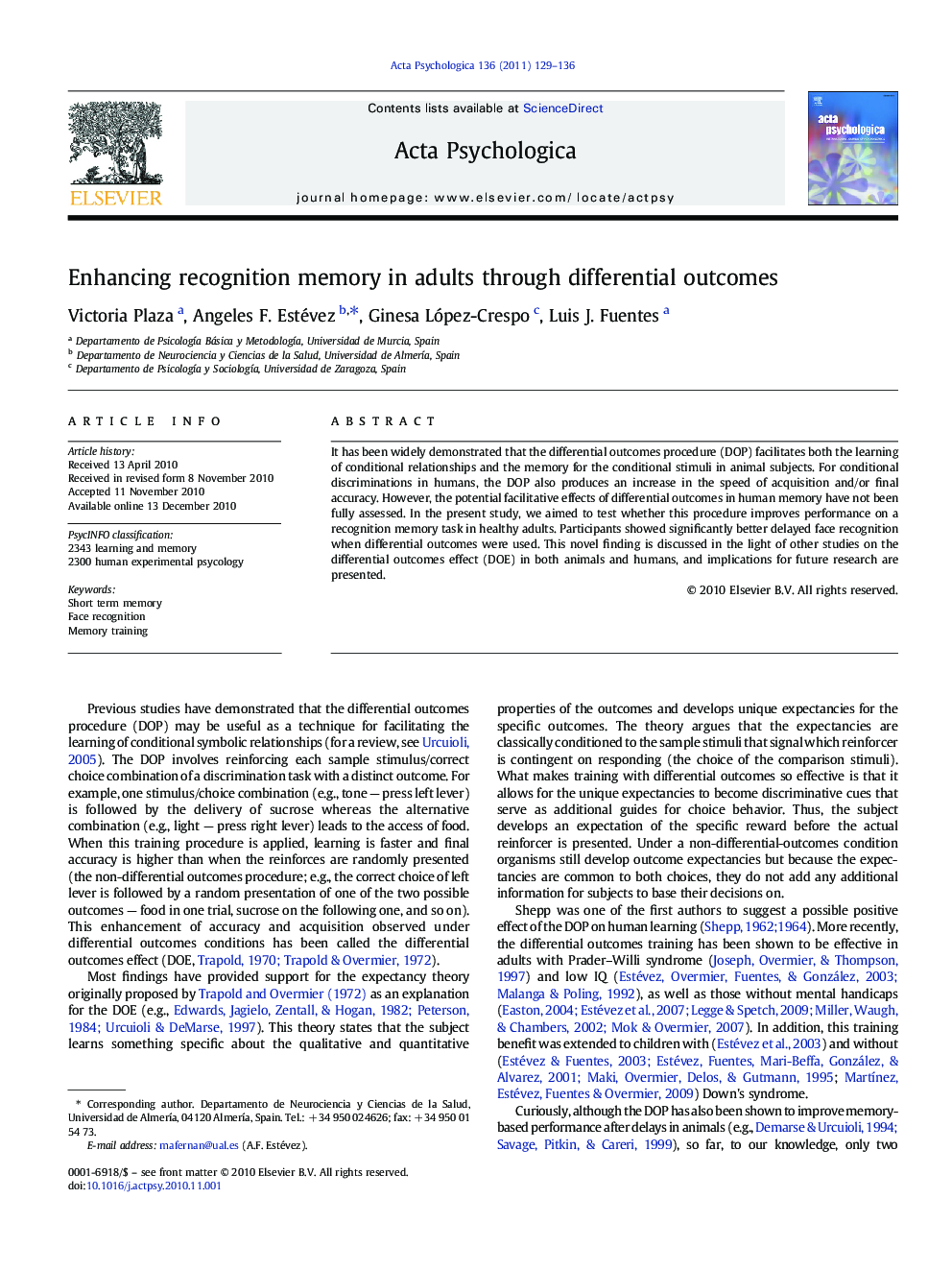| Article ID | Journal | Published Year | Pages | File Type |
|---|---|---|---|---|
| 920312 | Acta Psychologica | 2011 | 8 Pages |
It has been widely demonstrated that the differential outcomes procedure (DOP) facilitates both the learning of conditional relationships and the memory for the conditional stimuli in animal subjects. For conditional discriminations in humans, the DOP also produces an increase in the speed of acquisition and/or final accuracy. However, the potential facilitative effects of differential outcomes in human memory have not been fully assessed. In the present study, we aimed to test whether this procedure improves performance on a recognition memory task in healthy adults. Participants showed significantly better delayed face recognition when differential outcomes were used. This novel finding is discussed in the light of other studies on the differential outcomes effect (DOE) in both animals and humans, and implications for future research are presented.
